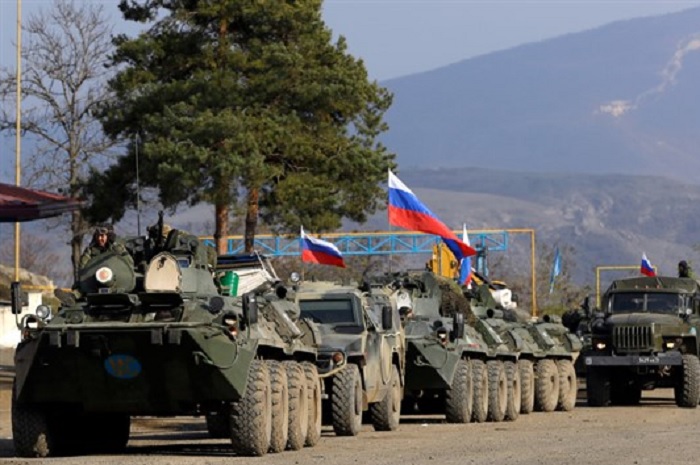
In late September, the frozen conflict between Armenia and Azerbaijan over the disputed region of Nagorno-Karabakh rapidly heated up. The six weeks of full-scale war that followed left thousands dead and tens of thousands more displaced. Unlike previous rounds of fighting that resulted in little exchange of territory, however, Azerbaijan’s well-armed and well-prepared military was able to make substantial gains on the battlefield, with significant support from neighboring Turkey.
Just as Azerbaijani forces looked poised to advance deep into Nagorno-Karabakh, Russia brokered a deal between the two sides to bring the fighting to an end last week, under terms that Armenian Prime Minister Nikol Pashinyan called “unbelievably painful.” The agreement requires Armenia to relinquish much of the territory it controlled in and around Nagorno-Karabakh, and for Moscow to dispatch 2,000 peacekeepers to the region.
According to Alexander Gabuev, a senior fellow and the chair of the Russia in the Asia-Pacific Program at the Carnegie Moscow Center, the deal is a win for the Kremlin, which has successfully reasserted its influence in the South Caucasus, independent of Western powers. But will the peace hold? Gabuev joins WPR’s Elliot Waldman on the Trend Lines podcast this week to discuss the aftermath of the recent fighting and the outlook for Nagorno-Karabakh. Click here to read a transcript of an excerpt from the interview.
 Eurasia Press & News
Eurasia Press & News



